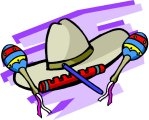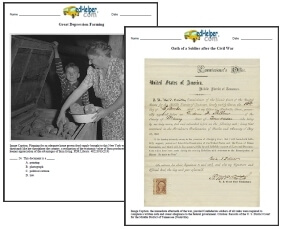
Worksheets and No Prep Teaching Resources
Reading Comprehension Worksheets
Hispanic Heritage

Hispanic Heritage
 Worksheets and No Prep Teaching Resources Reading Comprehension Worksheets Hispanic Heritage |
 Hispanic Heritage |
| edHelper's suggested reading level: | grades 4 to 6 | |
| Flesch-Kincaid grade level: | 5.05 |
|
Social Customs
By Jane Runyon |

|
 |
Create Weekly Reading Books
Prepare for an entire week at once! |
| Leave your feedback on Social Customs (use this link if you found an error in the story) |
 |
Hispanic Heritage
|
 |
United States
|
|
|
 | Fifty States Theme Unit |
 |
Document Based Activities |